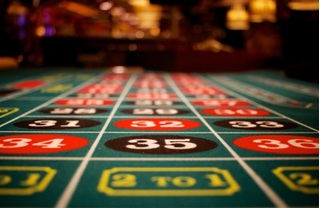Are
mini-casinos the future of gambling?
When people think of casinos, the first
thing that springs to mind is usually a large-scale building (often an
integrated resort) with luxury and excess as the primary features, or
perhaps an online casino site where you can play from the comfort of your
home. But a new form of
casino betting is being trialled in Pennsylvania. They're
dispensing 10 casino licenses for smaller 'mini-casinos' with a greatly
reduced floor space and without the hotel element of an integrated resort.
The reaction to Pennsylvania's decision has been mixed, to say the least -
are mini-casinos going to be the future of casino?

The evolution
of casino legislation
With fluctuating legality issues and
public perception, casinos have seen a rise in popularity and presence over
the last 100 years. In America, casinos were first legalised in Nevada in
the 1930s and after the success story of Las Vegas, a number of other states
began to legalise casinos in order to bring in greater traffic from outside.
One of the slowest adopters was Pennsylvania: it took several years to fully
license casinos - starting in 1993 with efforts to legalise gambling on the
state waterways. There was considerable pushback from residents and a
governor who refused to act without the consensus of the people. Eventually,
in 2004, legislators passed Act 71 which is also known as the
Pennsylvania Racehorse Development and Gaming Act. This would
legalise the use of casinos across the state and the financial benefits were
soon seen. During the first full year of operation, the state saw tax
revenues to the tune of $766 million dollars - the only area that saw more
income from gambling was
Nevada itself!
A part of this is down to the evolving nature of casinos. While the first
casinos were saloon bars, it wasn't long before they began to evolve into
luxurious integrated resorts. These resorts appealed to the type of high
rollers that Las Vegas was after and led to the current trend for casinos to
be glamorous holiday destinations with gambling supplemented by the
outstanding facilities and attractions. The expansion of integrated resorts
has spread into Asia, with Macau and Singapore prime examples of how
attractive the casino market is when it's attached to such a tourist-focused
industry as hotels. Casino legislation has been an ever-evolving and
improving market, and with online gaming in particular driving the industry
forward, it's predicted that the value of the online gaming industry is
going to increase this year to
$700 billion. Frequent innovations and a competitive global
market place driven by who can offer the best welcome offer, or sports the
coolest
casino games app, keeps the industry improving. But it's not just
online, physical casinos are constantly trying to improve as well which
leads us on to Pennsylvania's latest initiative.
The creation of
mini-casinos
By Pennsylvanian Law, there were three
different categories of casino that you could be licensed for, with
mini-casinos now raising the number to
four. A category 1 casino or 'racino' is intended to boost the
state's horse racing industry by combining the thrill of the racetrack with
the glamour of a casino - a category 1 can have as many as 250 table games
and 5,000 slot machines. Category 2, or a standalone casino, is a building
dedicated solely to being a casino but without the racetrack element and has
the same limit on table games and slot machines. A category 3 is one of the
aforementioned integrated resort hotels, which have a stricter limit on what
they can and can't include, with a restriction on how many of each type of
game they can have, i.e. only 600 slot machines and 50 table games.
The newest category, category 4, is called either a mini-casino or a
satellite casino and is even more limited than category 3 (with 300 to 750
slot machines and up to 30 table games). According to the
mini-casino legislation they also cannot
be within a certain distance of the existing category 1, 2 or 3 casinos,
which limits where they can be opened. Despite all these restrictions, the
ten licenses on offer have been in high demand with many companies eager to
try out one of these smaller creations. But the response from locals and
some in the industry has been mixed.
A number of local towns, in classic 'Nimby' style, have
opted out of having a casino built in their area but there are a
fair few still keen to host one of the new casinos. According to Alan
Woinski, editor of the Gaming Industry Daily Report "The
whole Northeast gaming market is saturated." Rather than
improving the economy, he expects the new casinos will cannibalise existing
revenue and lead to fewer tourists for individual casinos. Whether or not
his fears are well founded remain to be seen, but the belief appears to be
held by a few operators as only
half of the licenses have been auctioned off at the date of
writing.
So, are mini-casinos the future? It's still not clear, Pennsylvania's
experiment has yet to be completed, but if the smaller businesses prove
helpful for the economy, you can be sure that other states will soon follow
suit. But how about you? Are you interested in giving mini-casinos a shot?
Let us know in the comments!